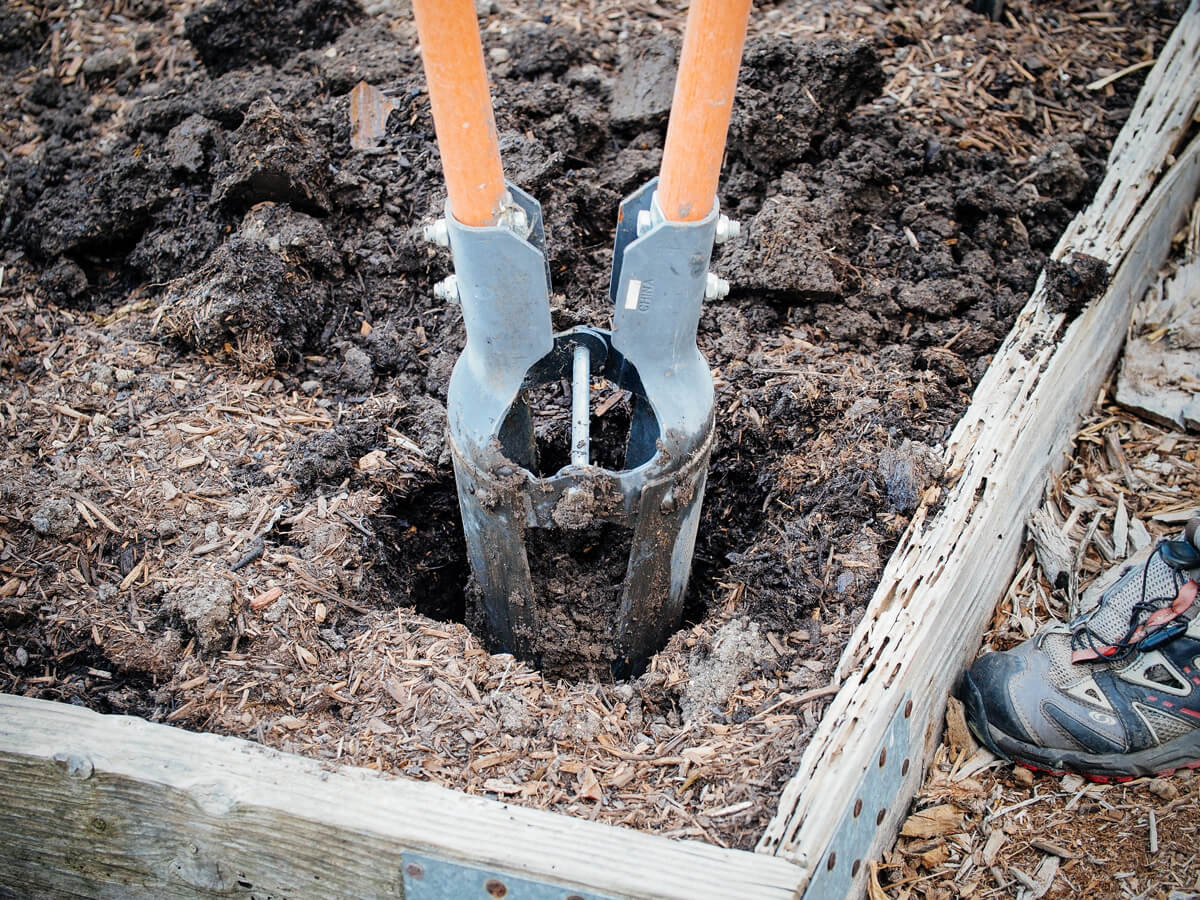News
Tired of struggling with traditional shovels for post holes? Our specialized post hole digger shovel simplifies your tasks and boosts efficiency.Here's why it's the best post hole shovel for your needs:
Efficient Digging: Designed specifically for post holes, this shovel allows for precise and clean cuts, reducing the effort required.
Durable Construction: Built with high-quality materials, our shovel ensures longevity and withstands tough soil conditions.
Comfortable Grip: The ergonomic handle provides a comfortable grip, minimizing hand fatigue during extended use.
Lightweight Design: Despite its sturdy build, the shovel is lightweight, making it easy to handle and maneuver.
Versatile Use: Ideal for fence installations, mailboxes, and planting trees, this shovel is a versatile addition to your toolkit.

Why Choose Our Shovel for Post Holes?
Precision: Achieve uniform hole sizes for consistent post placement.
Time-Saving: Speeds up the digging process, allowing you to complete projects faster.
Cost-Effective: Reduces labor costs by making the digging process more efficient.
Customer Testimonials
"This shovel made digging post holes a breeze. Highly recommend!" – Alex P.
"Sturdy and reliable. The best post hole shovel I've used." – Jamie L.
Order Yours Today
Don't let digging post holes be a daunting task. Equip yourself with our specialized shovel and experience the difference. Order now and take the first step towards hassle-free digging!

Yes, you can dig a post hole with a standard shovel, but it's not the most efficient method. Using a regular shovel often results in wider holes than necessary, leading to increased backfill and potential instability for the post. Additionally, achieving the recommended depth of about 2 feet can be challenging with a standard shovel.
Select the Appropriate Shovel: Opt for a trenching shovel or a narrow-bladed shovel, as these are better suited for digging deep, narrow holes compared to standard flat-bladed shovels.
Mark the Hole Location: Use stakes or spray paint to outline the exact spot where each post will be placed, ensuring accurate spacing and alignment.
Break Ground: Position the shovel at the center of your marked spot. Apply pressure with your foot to penetrate the soil, creating the initial cut.
Create a Perimeter: Continue making vertical cuts around the circumference of the hole, forming a circle approximately 8 to 12 inches in diameter, depending on the post size.
Remove Soil: After defining the perimeter, angle the shovel inward to scoop out soil from the center. Repeat this process, working your way down evenly around the hole.
Maintain Hole Shape: Periodically check that the hole remains cylindrical with straight sides. Adjust your digging technique as needed to prevent the hole from widening unnecessarily.
Reach Desired Depth: For standard fence posts, aim for a depth of at least 2 feet to ensure stability.
Clear Loose Soil: Use the shovel to remove any loose soil at the bottom of the hole, creating a flat base for the post.
Select the Right Shovel: A trenching shovel or a narrow-bladed shovel is more effective for digging deep, narrow holes compared to a standard flat-bladed shovel.
Mark the Spot: Clearly mark the location where you intend to dig, ensuring accurate placement for your post.
Break Ground: Position the shovel at the center of your marked spot. Apply pressure with your foot to penetrate the soil, creating the initial cut.
Define the Perimeter: Continue making vertical cuts around the circumference of the hole, forming a circle approximately 8 to 12 inches in diameter, depending on the post size.
Remove Soil: After defining the perimeter, angle the shovel inward to scoop out soil from the center. Repeat this process, working your way down evenly around the hole.
Maintain Hole Shape: Periodically check that the hole remains cylindrical with straight sides. Adjust your digging technique as needed to prevent the hole from widening unnecessarily.
Reach Desired Depth: For standard fence posts, aim for a depth of at least 2 feet to ensure stability.
Clear Loose Soil: Use the shovel to remove any loose soil at the bottom of the hole, creating a flat base for the post.

 Sitemap
Sitemap